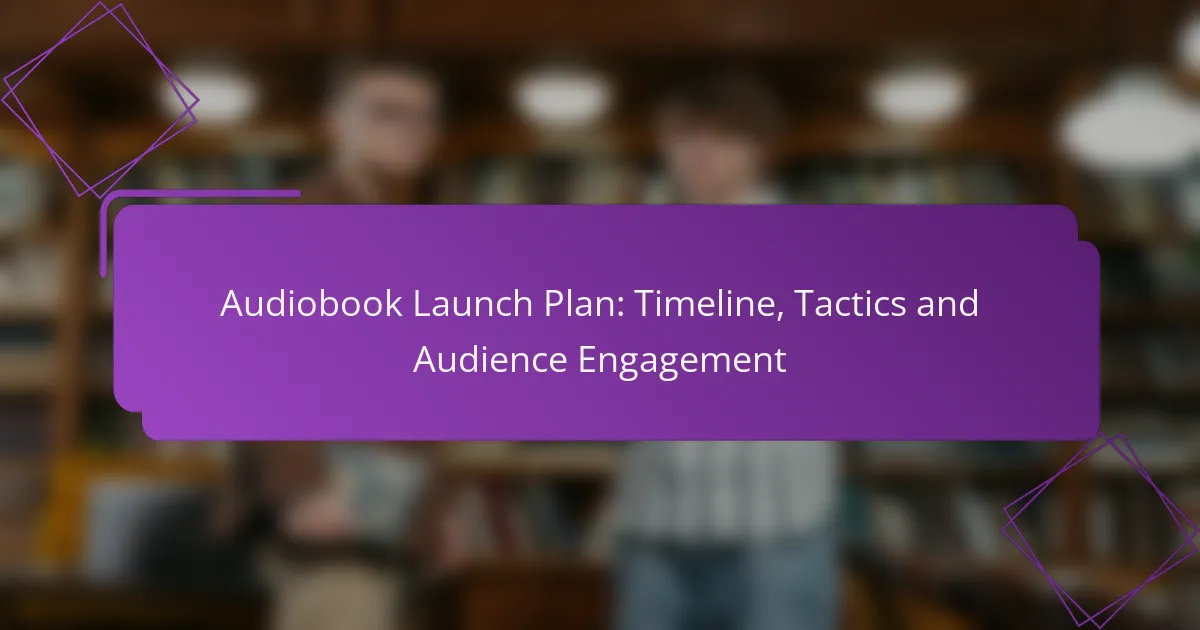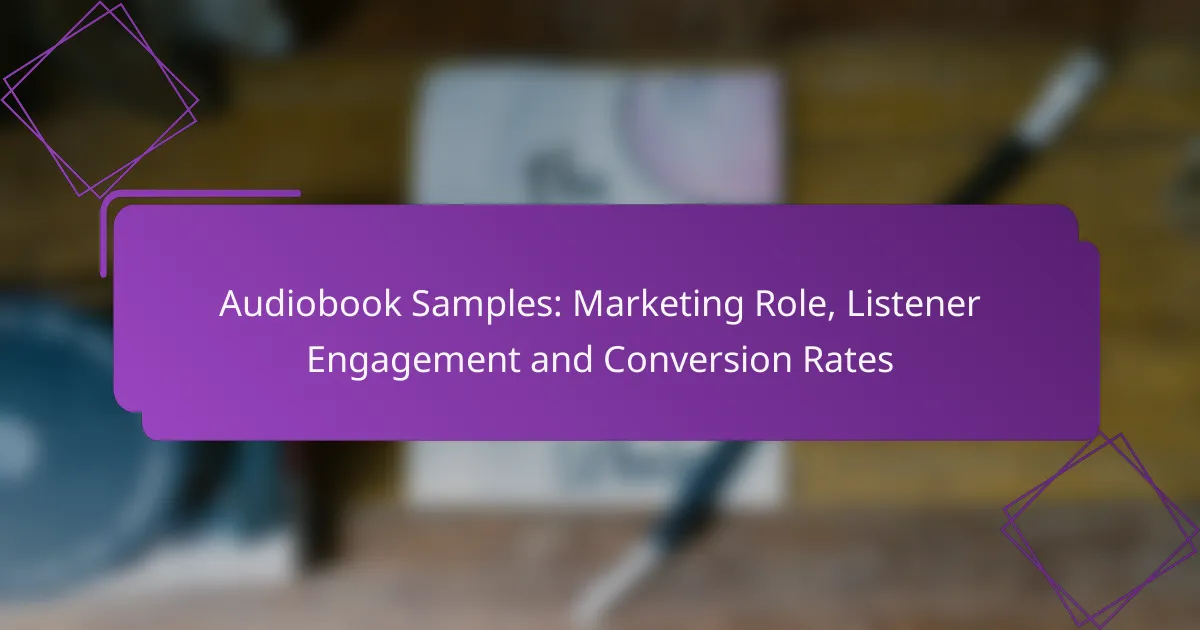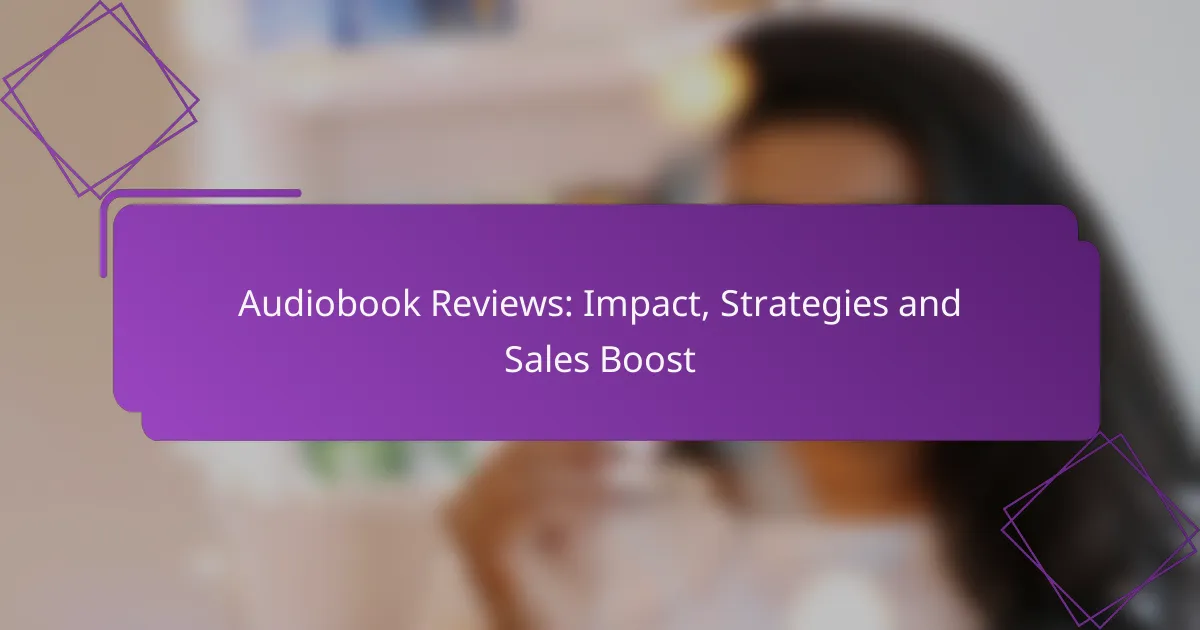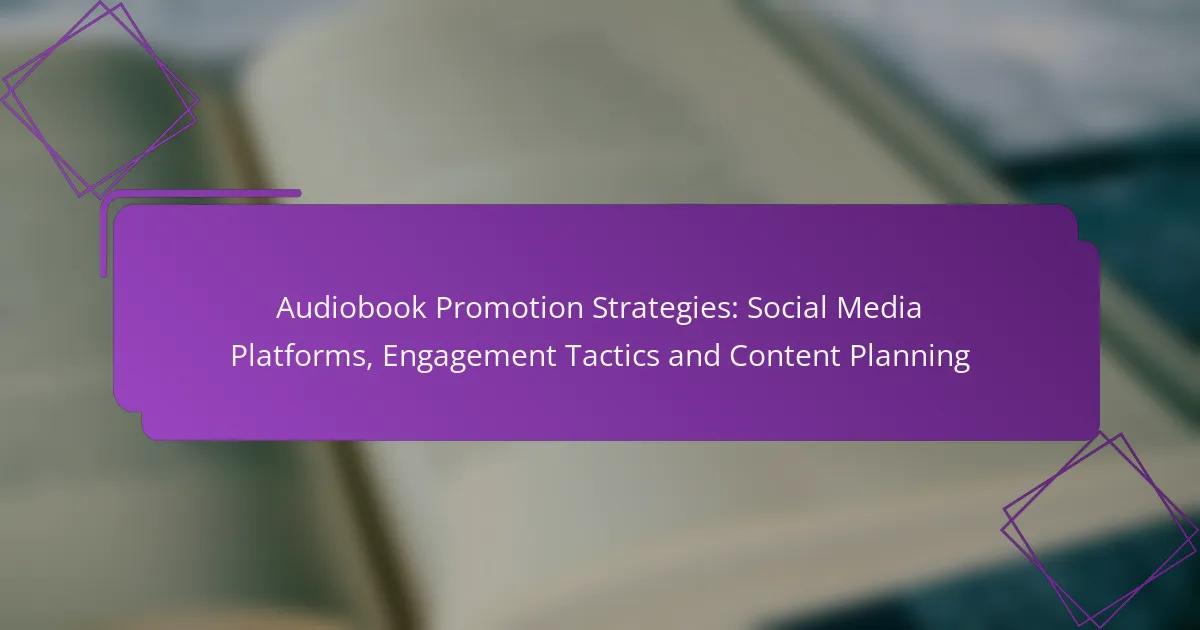Launching an audiobook successfully requires a well-structured timeline that outlines essential phases and activities to maximize audience engagement and sales. By employing targeted marketing strategies, such as social media outreach and influencer collaborations, you can effectively connect with potential listeners. Understanding your audience’s demographics and interests is crucial for tailoring your marketing efforts and ensuring your content reaches those who will benefit most.

How to create an effective audiobook launch timeline?
An effective audiobook launch timeline outlines the key phases and activities necessary for a successful release. It helps ensure that all tasks are completed on schedule, maximizing audience engagement and sales potential.
Pre-launch planning phases
Pre-launch planning is crucial for setting the stage for your audiobook’s success. Start by defining your target audience and researching their preferences. Create a marketing strategy that includes social media promotion, email campaigns, and partnerships with influencers in the audiobook space.
Additionally, consider setting a timeline that includes milestones for production, marketing material creation, and distribution. This will help you stay organized and ensure that everything is ready for launch day.
Key milestones for launch
Key milestones for your audiobook launch should include finalizing the recording, editing, and mastering processes. Aim to complete these tasks at least a month before the release date to allow for any unforeseen delays.
Other important milestones include launching pre-order options, sending out advance review copies, and scheduling promotional events. Each of these steps should be clearly marked on your timeline to maintain focus and accountability.
Post-launch activities
Post-launch activities are essential for sustaining momentum after your audiobook is released. Begin by monitoring sales and gathering listener feedback to assess the initial reception. This information can guide future marketing efforts and adjustments.
Engage with your audience through social media and email newsletters, sharing behind-the-scenes content or hosting Q&A sessions. Consider running promotional discounts or giveaways to attract new listeners and keep the conversation going.
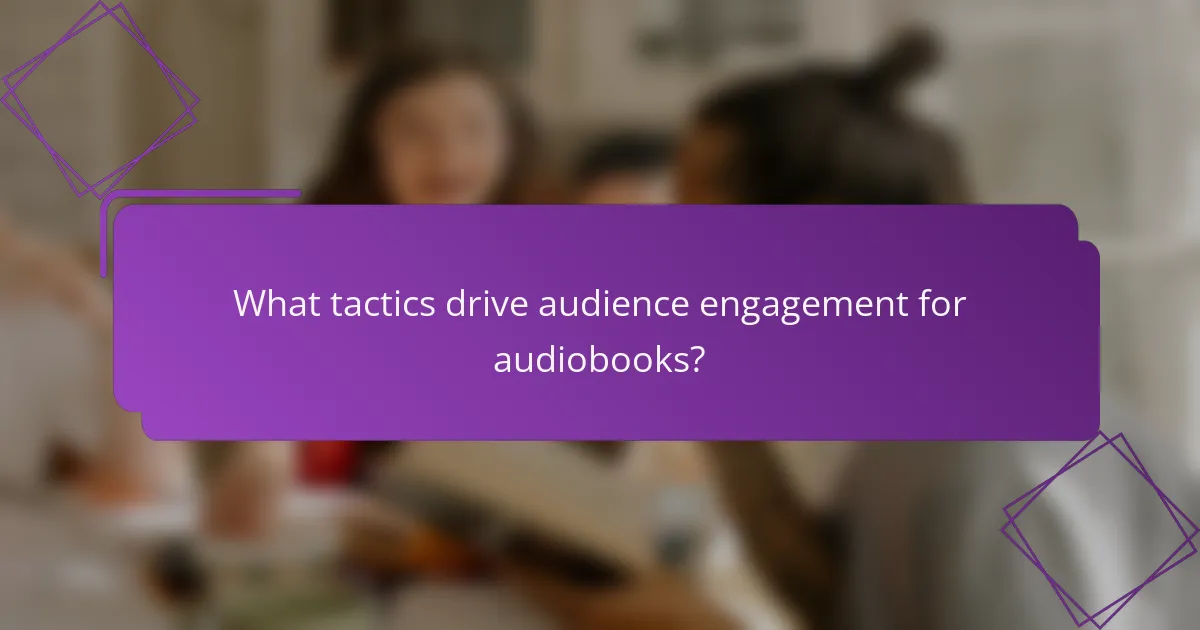
What tactics drive audience engagement for audiobooks?
Effective audience engagement for audiobooks relies on a mix of targeted marketing strategies that connect with potential listeners. Utilizing social media, email campaigns, and influencer collaborations can significantly enhance visibility and listener interaction.
Social media marketing strategies
Social media platforms are crucial for promoting audiobooks and engaging with audiences. Create visually appealing posts that highlight key themes, quotes, or character insights from your audiobook to attract attention. Regular updates and interactive content, such as polls or Q&A sessions, can foster community involvement.
Consider using platforms like Instagram and TikTok, where short audio clips can be shared to pique interest. Hashtags related to your genre or themes can help reach a broader audience. Aim for consistent posting schedules to maintain engagement and visibility.
Email marketing campaigns
Email marketing remains a powerful tool for engaging audiobook listeners. Build a mailing list by offering exclusive content, such as sample chapters or behind-the-scenes insights, in exchange for email subscriptions. Regular newsletters can keep your audience informed about new releases, promotions, or events.
Segment your email list based on listener preferences to tailor your messages effectively. Use compelling subject lines and clear calls to action to encourage clicks. Aim for a balance between promotional content and valuable information to keep subscribers engaged without overwhelming them.
Influencer partnerships
Collaborating with influencers can amplify your audiobook’s reach and credibility. Identify influencers within your genre who have a dedicated following and align with your brand values. Offer them free copies of your audiobook in exchange for reviews or promotional posts.
Track the effectiveness of these partnerships by monitoring engagement metrics and sales conversions. Ensure that the influencer’s audience matches your target demographic to maximize impact. Building long-term relationships with influencers can lead to ongoing promotional opportunities and sustained audience engagement.
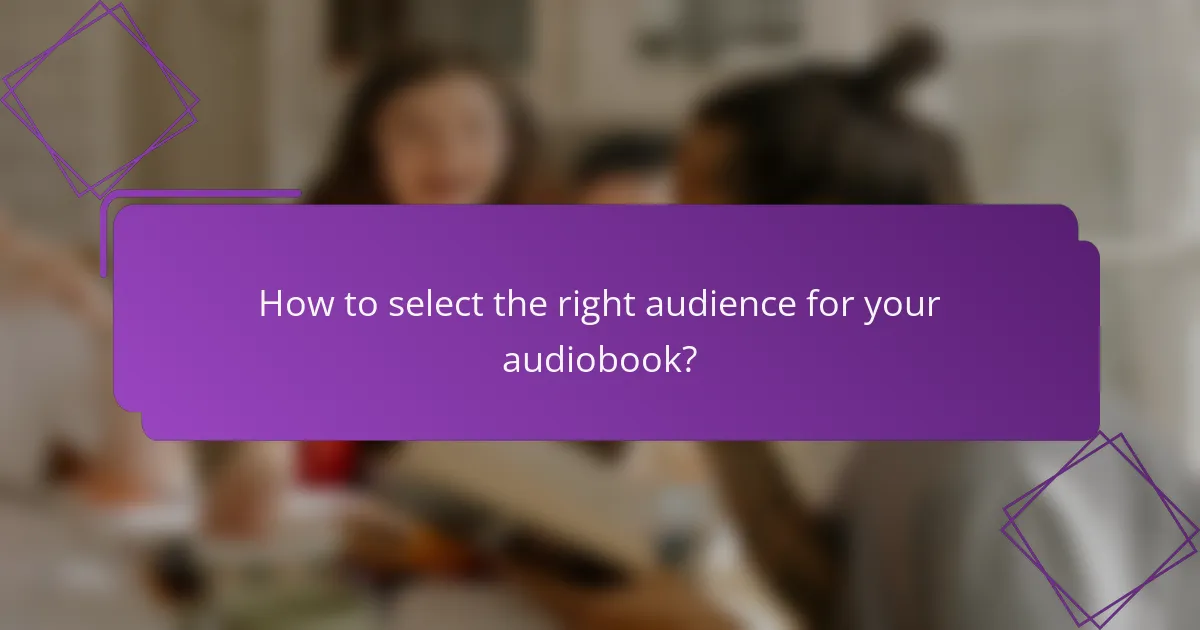
How to select the right audience for your audiobook?
Selecting the right audience for your audiobook involves understanding who will benefit most from your content. Identifying specific demographics and interests allows you to tailor your marketing strategies effectively.
Identifying target demographics
Start by defining the key demographics that align with your audiobook’s theme. Consider factors such as age, gender, location, and interests. For instance, a self-help audiobook may appeal more to adults aged 25-45, while a children’s story targets parents and young readers.
Utilize available data from platforms like social media and audiobook services to analyze listener trends. This information can help you refine your audience profile and focus your promotional efforts on the most relevant groups.
Utilizing audience personas
Create audience personas to represent different segments of your target market. These personas should include details like their preferences, challenges, and motivations related to audiobooks. For example, a persona might be a busy professional who prefers audiobooks for their commute.
Using these personas, you can develop tailored marketing messages that resonate with each segment. This targeted approach can enhance engagement and increase the likelihood of conversions.
Engagement through surveys
Surveys are an effective tool for gathering insights directly from potential listeners. Create short, focused surveys to ask about their audiobook preferences, listening habits, and topics of interest. This feedback can guide your content creation and marketing strategies.
Consider offering incentives, such as discounts or exclusive content, to encourage participation. Analyzing survey results will help you refine your audience selection and ensure your audiobook meets their expectations.

What are the best platforms for audiobook distribution?
The best platforms for audiobook distribution include Audible, Google Play Books, and Apple Books. Each platform offers unique benefits and features that can help authors reach their target audience effectively.
Audible distribution benefits
Audible is one of the largest audiobook platforms, providing access to millions of listeners. Its subscription model allows users to access a vast library of audiobooks, which can lead to higher sales for authors.
Authors can benefit from Audible’s promotional tools, such as Audible Originals, which can increase visibility. Additionally, the platform offers a robust royalty structure, typically ranging from 25% to 40% depending on the exclusivity of the distribution agreement.
Google Play Books advantages
Google Play Books allows authors to distribute audiobooks to a global audience, leveraging Google’s extensive reach. It supports a pay-per-download model, which can be appealing for authors who prefer immediate sales over subscriptions.
One key advantage is the integration with Google’s ecosystem, making it easy for users to discover and purchase audiobooks. Authors retain a significant portion of the revenue, often around 70%, which can be more lucrative compared to other platforms.
Apple Books features
Apple Books offers a user-friendly interface and seamless integration with Apple devices, making it a popular choice among iOS users. The platform allows authors to reach a dedicated audience and provides tools for marketing and promotions.
Authors can set their own prices and retain about 70% of the sales revenue. Additionally, Apple Books supports features like pre-orders and promotional pricing, which can help boost initial sales and engagement.
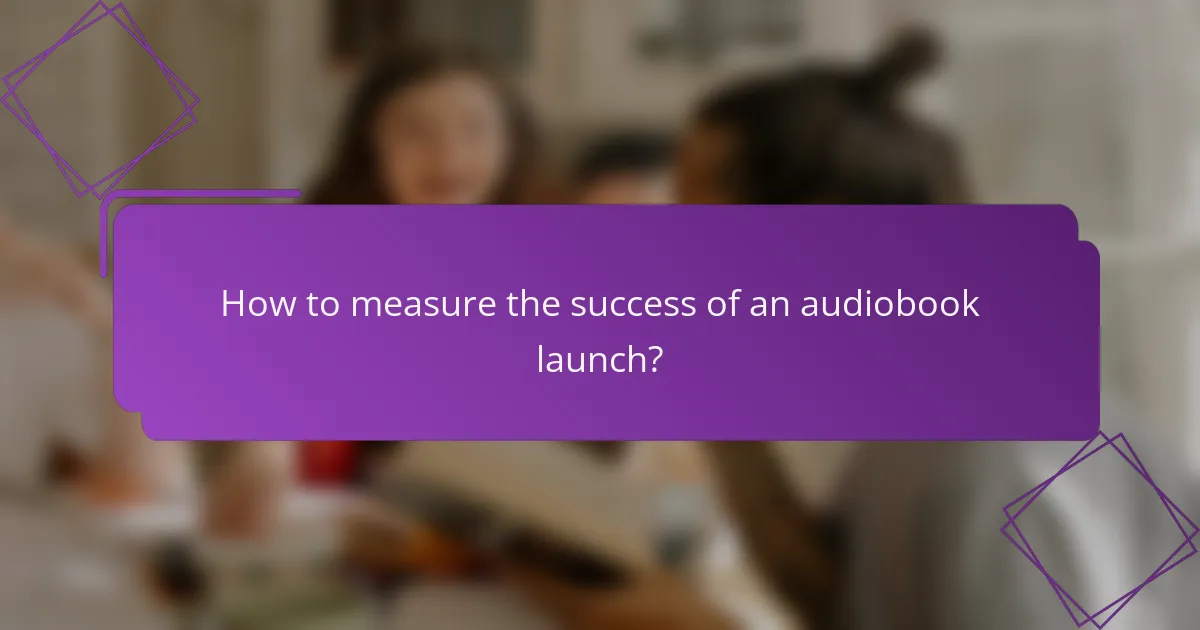
How to measure the success of an audiobook launch?
Measuring the success of an audiobook launch involves analyzing various metrics that reflect sales performance, audience feedback, and engagement levels. By focusing on these areas, creators can gain insights into the effectiveness of their launch strategies and identify opportunities for improvement.
Sales metrics analysis
Sales metrics are crucial for evaluating the financial success of your audiobook launch. Key indicators include total sales volume, revenue generated, and the average selling price. Tracking these metrics over time helps you understand trends and make informed decisions about pricing and marketing strategies.
Consider comparing your sales data to industry benchmarks or previous launches. For example, if your audiobook sells in the low hundreds within the first month, it may indicate a need for enhanced marketing efforts or audience targeting.
Audience feedback collection
Collecting audience feedback is essential for understanding listener satisfaction and areas for improvement. Utilize surveys, reviews, and social media interactions to gather insights on what listeners enjoyed or disliked about your audiobook. This qualitative data can guide future projects and marketing approaches.
Encourage listeners to leave reviews on platforms like Audible or Goodreads, as these can significantly influence potential buyers. Aim for a balanced mix of feedback to identify common themes and actionable suggestions.
Engagement rate tracking
Engagement rates provide insight into how actively your audience interacts with your audiobook content. Metrics to track include listener retention, average listening time, and social media shares. High engagement rates often correlate with positive word-of-mouth and increased sales.
Utilize analytics tools available on audiobook platforms to monitor these metrics. For example, if listeners consistently drop off after a certain chapter, it may indicate pacing issues or content that fails to resonate. Adjusting your marketing or content strategy based on these insights can enhance future launches.
